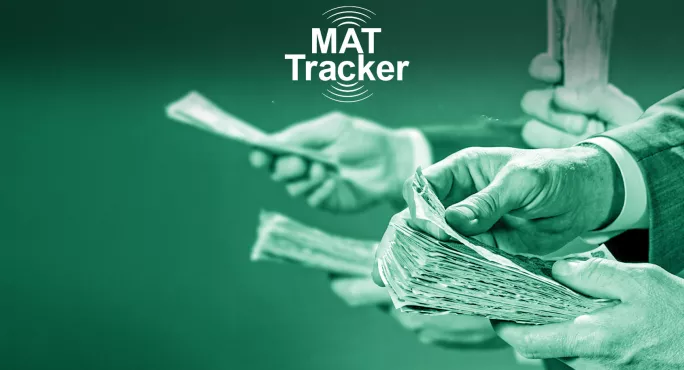
43-school MAT starts pooling academiesŌĆÖ reserves

One of the countryŌĆÖs biggest multi-academy trusts has taken the decision to pool its schoolsŌĆÖ reserves.
GLF Schools, which runs 43 academies, says trustees have set up a formal process by which schools can access trust reserves during the annual budgeting process.
The change came into effect in August 2024, the show.
Fund balances at individual schools ranged between ┬Ż1,000 in some of GLFŌĆÖs primaries to ┬Ż113,000 in one of its secondaries.
GLF Schools pools reserves
A spokesperson for the trust said: ŌĆ£The Department for EducationŌĆÖs guidance on reserves sets out that reserves are the trustŌĆÖs reserves, so pooling centrally reflects the DfEŌĆÖs expectations.ŌĆØ
The pooling of reserves or the general annual grant (GAG) for schools is becoming more common among trusts.
Some 32 per cent of MATs pooled income and/or reserves in 2023, up from 23 per cent in 2022, according to the latest .
And just under half of trusts asked were already pooling income or reserves or were considering it as of February 2024, the Kreston report states.
GLF does not GAG pool; the process whereby MATs take all of their schoolsŌĆÖ GAG funding and redistribute it based on need.
While an increasing number of MATs are GAG pooling, it has proven controversial in some cases.
Reserves up by ┬Ż2.5m
GLFŌĆÖs accounts show that its total uncommitted revenue reserves increased from ┬Ż11.4 million in 2022-23 to ┬Ż13.9 million in 2023-24. This amounted to 11.1 per cent of total income.
The accounts add: ŌĆ£The excess over 5 per cent reflects the good stewardship of our schools over recent years and should provide some resilience should funding not cover increases in pay and other costs.ŌĆØ
More than one in three multi-academy trusts have forecast their revenue reserves dropping below the DfE threshold of 5 per cent of income by the end of 2026-27, according to a report published by IMP Software last year.
The DfE, through the Education and Skills Funding Agency in the past, has contacted trusts when their reserves have fallen below 5 per cent because .
The same guidance says that the government regards a trust as holding a high level of reserves if it amounts to 20 per cent of total income or more.
Change of leadership
GLF Schools had a change of CEO during the 2023-24 year covered by the latest accounts: Jon Chaloner was replaced in January last year by Julian Drinkall.
The accounts show that in 2022-23 the trustŌĆÖs highest earner, which Tes understands was Mr Chaloner, had been paid between ┬Ż200,001 and ┬Ż210,000.
Mr Drinkall was paid from January onwards on the basis of a ┬Ż190,000 to ┬Ż200,000 full-time salary.
He has previously been the chief executive of Academies Enterprise Trust (AET), which has since been rebranded as Lift Schools.
Accounts for AET show that Mr Drinkall was paid between ┬Ż240,000 and ┬Ż245,000 for his work as chief executive up until the end of May 2021.
He left AET in 2021 to become general manager of Aga Khan Academies.
- MAT finances: Largest MAT publishes accounts
- Funding: Biggest primary trust posts ┬Ż1.1m deficit
- Trust strategy: When should MATs start consolidating systems?
The highest earner in GLF SchoolsŌĆÖ accounts for 2023-24 is shown to have earned between ┬Ż170,001 and ┬Ż180,000 - but this was neither of the trustŌĆÖs CEOs.
A trust spokesperson said: ŌĆ£GLF Schools can clarify that the highest paid figure in the 2023-24 accounts is not the current CEO, but another employee who has now left the trust. This figure includes restructuring costs.
ŌĆ£Having joined part way through the year, the current CEOŌĆÖs salary in our most recent financial statements is pro-rata rather than for a full year. The full year figure is in the ┬Ż190-200,000 banding, lower than the previous CEOŌĆÖs salary.ŌĆØ
ŌĆśInclusive curriculumŌĆÖ is main priority
The accounts note that a new primary school curriculum covering six subjects has been implemented across all 35 of the trustŌĆÖs primaries.
The accounts add: ŌĆ£Eight of our primary schools were inspected by Ofsted, and the curriculum was rated very positively in those.ŌĆØ
Implementing an ŌĆ£ambitious and inclusiveŌĆØ primary school curriculum is listed as being one of the trustŌĆÖs main priorities in 2024.
The other priorities highlighted were to increase the number of nursery places available through the trustŌĆÖs schools, delivering a high-quality early years curriculum and developing school-level, detailed strategic plans focused on key priorities for each school over the next one, three and five years.
The accounts note that GLF Schools has implemented several measures to reduce energy use.
It has completed a programme of solar PV panel installations across 35 schools, which are now live and generate electricity. This is aimed at reducing annual electricity purchase from the group by more than 25 per cent.
For the latest education news and analysis delivered every weekday morning, sign up for the Tes Daily newsletter
You need a Tes subscription to read this article
Subscribe now to read this article and get other subscriber-only content:
- Unlimited access to all Tes magazine content
- Exclusive subscriber-only stories
- Award-winning email newsletters
- Unlimited access to all Tes magazine content
- Exclusive subscriber-only stories
- Award-winning email newsletters
You need a subscription to read this article
Subscribe now to read this article and get other subscriber-only content, including:
- Unlimited access to all Tes magazine content
- Exclusive subscriber-only stories
- Award-winning email newsletters
- Unlimited access to all Tes magazine content
- Exclusive subscriber-only stories
- Award-winning email newsletters
topics in this article



